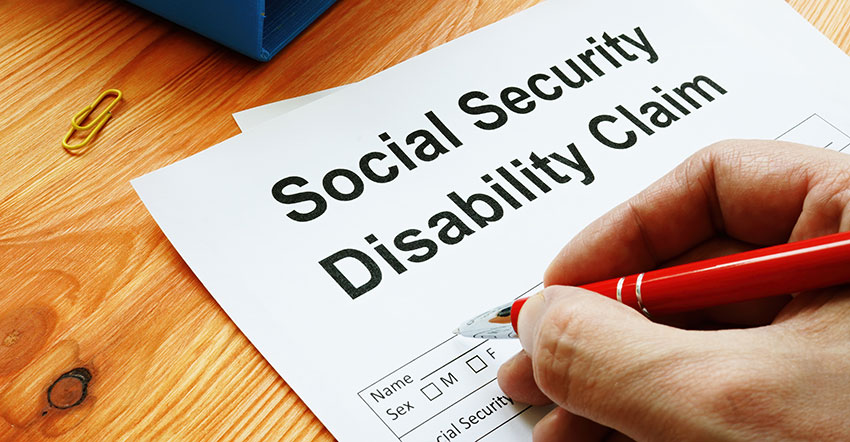When you find yourself stuck between a rock and a hard place, it can feel like there is no way out. This emotion can come up due to different causes, but usually it’s because of money problems. Life is expensive. It’s very easy to get caught into a debt trap. When you find yourself underwater financially, you may benefit from considering bankruptcy. That’s a scary word for some people. However, once knowing the details, they may feel differently.
Knowing When to File for Bankruptcy
Declaring bankruptcy is a hard choice, but at times, it’s the only escape from money troubles. If you’re finding it hard to pay your debts and you owe more than what you make or own, it might be time to consider filing. Before you go down this path, it’s important to look at all other possible options.
Alternatives to Consider
Don’t know where to start? A financial advisor can help you analyze your financial status and give counsel on whether or not bankruptcy is a sensible decision for you. They can also offer advice on budgeting, debt management plans, or other alternatives that could help improve your financial health without resorting to bankruptcy.
You can also try negotiating with your creditors. Talk honestly to everyone you owe money to about your money troubles, and ask if they’d agree to a new payment plan or accept less. Be honest about what you can afford. Don’t agree to a payment plan that will only put more strain on your finances in the long run. Keep records of all communication. Document any agreements made between yourself and creditors as proof should any disputes arise later on.
If after exploring these options you still find yourself unable to manage debts effectively, then it might be time to consider filing for bankruptcy. Remember that this decision should not be taken lightly; it’s essential to explore all available resources before deciding whether or not filing is necessary.
Types of Personal Bankruptcy
Deciding to file for personal bankruptcy is tough, but understanding the different types available can help you make an informed choice. The two most common types are Chapter 7 and Chapter 13<, each with its own set of rules and requirements.
Chapter 7 Bankruptcy
Chapter 7 bankruptcy, also known as liquidation bankruptcy, helps people with little or no income get rid of their unsecured debts. In this process, a court-appointed trustee sells your non-exempt assets (like cars or valuable jewelry) to pay off your creditors. Some property may be exempt from being sold.
Chapter 13 Bankruptcy
If you have a regular income but still struggle with debt repayment, Chapter 13 bankruptcy might be more suitable for you. Under Chapter 13 bankruptcy, you can create a repayment plan that lasts three-to-five years based on your disposable income to help manage debt. Creditors are prohibited from any action, such as wage garnishment or home foreclosure, during the three-to-five year period of Chapter 13 repayment.
Consequences of Filing for Bankruptcy
Filing for bankruptcy is like getting a financial tattoo – it’s permanent and painful. Before taking the first step, it is essential to be aware of the aftermath.
Impact on Credit Scores
Your credit score will take a hit when you file for bankruptcy. Getting loans or credit cards in the future may be difficult due to a bankruptcy filing. It may also increase interest rates on any existing debts you have. However, over time, if you follow responsible financial practices, your credit score can improve.
Potential Loss of Property
In some cases, filing for bankruptcy might lead to the loss of property such as your home or car. This depends on the type of bankruptcy filed and whether these assets are considered exempt under state laws. To better understand how this could impact you personally, consult with an experienced bankruptcy attorney.
Rebuilding Credit After Bankruptcy
Patience and commitment can aid in the journey to enhance one’s financial standing eventually. Here are some steps to help you get started on the road to recovery:
Obtaining Secured Credit Cards Post-Bankruptcy
A secured credit card is an excellent option for rebuilding credit after bankruptcy. These cards require a cash deposit as collateral, which becomes your credit limit. By using this card responsibly and making timely payments each month, you’ll demonstrate positive financial behavior that will gradually increase your credit score.
Creating a Budget
In order to be smart with your money, you need to have a clear picture of your money. You will want to develop a realistic monthly budget that accounts for all expenses while prioritizing debt repayment. Focus on repaying loans or lines of credit with higher interest rates before tackling those with lower rates. Keeping low balances on any existing lines of credit demonstrates responsible borrowing habits. Add different types of credits like installment loans or retail store accounts in addition to secured credit cards to show responsible use of various forms of credit.
FAQs in Relation to When is the Right Time to File for Bankruptcy
Why is bankruptcy so bad?
Bankruptcy can have long-lasting negative effects on your credit, making it difficult to obtain loans or new lines of credit, and it stays on your credit report for up to 10 years. However, it can provide relief from overwhelming debt and a fresh financial start.
Is it better to avoid paying debts or just file for bankruptcy?
Filing for bankruptcy is generally better than simply not paying debts, as it offers legal protection and an organized plan for resolving debt issues. Not paying can result in lawsuits, wage garnishments, and continued damage to your credit score without resolution.
Conclusion
Struggling with debt? Talk to a financial advisor, credit counselor, or negotiate with creditors before considering bankruptcy. Bankruptcy should be considered as a last resort. Bankruptcy commonly comes in two flavors: Chapter 7 and Chapter 13. Know the difference before making a decision. Declaring bankruptcy can hurt your credit score and may result in losing property. But don’t worry, you can rebuild your credit with secured credit cards and new payment plans. It may be a good option for you to consider if you find yourself too deep underwater.



